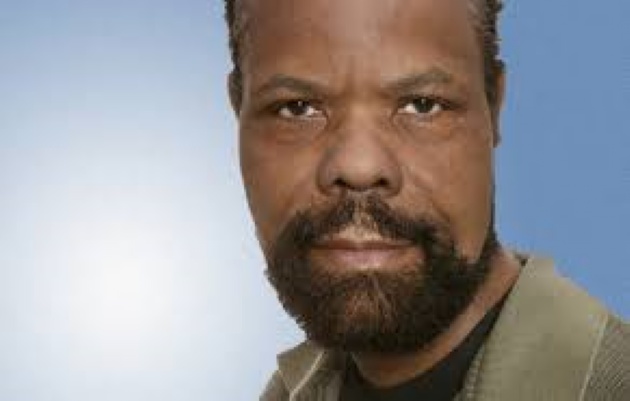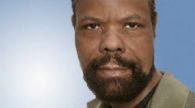CDB; I know you’re a writer, poet,
published author, and former professor. Which one do you identify with the
most?
HNT; I’m not altogether sure whether I identify more with being a writer or being a
professor. I sincerely believe that in my case they are complementary. Teaching
students how to analyze imaginative literature and how to express their
discoveries cogently brought me great satisfaction. Writing is more of an
egocentric pursuit that brings satisfaction when something worthwhile is
produced—whether or not it’s ever published.
CDB; At age ten you
said that you wanted to become a teacher, so why did you study psychiatric
nursing for two years at Douglas Hospital and worked part-time as a mental
health worker?
HNT; By the time I was nineteen, I wasn’t as certain
about a career in education. In my native St. Vincent, I was distressed by the
poor care psychiatric patients received. I felt that training in psychiatry
would enable me to return to St Vincent and work in the field. I, however,
discovered that it wasn’t an occupation that suited my temperament.
CDB; You were a professor at Université Laval and you retired in
2006, do you miss teaching? While teaching, did you indoctrinate any of your
ideologies (i.e. immigration, homosexuality, poverty, atheism, etc.).
HNT; I was very happy with my teaching career, although it wasn’t devoid of
frustrations, especially in the last five years when the classes doubled and
tripled in size and made class participation—vital for a study of
literature—problematic. But while I taught, it wasn’t always possible to follow
my imagination wherever it took me. There were courses to prepare and teach and a
schedule to follow. Retirement has given me the time to let my imagination
roam.
On the subject of injecting my personal
ideology into the discussions I held with my students, I would have to say I
didn’t—not consciously at any rate. However, there were texts in which ideology
was implicit or explicit, and my students or I identified it and examined its
implications. Thoreau’s and Emerson’s attacks on US materialism, Melville’s
implicit critique of Calvinism, Whitman’s pro-homosexual stance are some of the
instances that come to mind.
CDB; Why did you choose to teach
American Literature at Université Laval? Why not Canadian or French Literature?
HNT; The fact that Laval is a French language university does not preclude its
offering degrees in languages other than French. All first-class universities do. Laval offers
degrees in English at the bachelor’s, master’s and doctoral levels. I taught
courses in the areas I’d specialized in; nineteenth and twentieth century US
literature and eighteenth-century British literature. Since Laval, like
Université de Montréal, offered degrees in English that were comparable to
those in Canadian universities, it was essential that the curriculum cover all
the periods of literature written in English as well as the factors that shaped
that literature.
CDB; Among your published work, which
includes short stories, critical studies, poems and novels, which of these do
you enjoy working on the most?
HNT; Without doubt, the novel. Poetry and short fiction are excellent for
the intensity that characterizes them, but, unlike the novel, they leave little
room to explore a theme in diverse ways. Least interesting is literary
criticism. I enjoyed doing it while I had to. Now, beyond writing book reviews,
I do very little of it.
CDB; Have you been working on another
project since your anthology, Lives; Whole and Otherwise (2010)?
HNT; I have a few manuscripts in various stages of completion. One, which is
the first tome of a trilogy, is due to be published in 2015. By the way “Lives; Whole and Otherwise” will appear in a French translation with the
title “Des vies cassées”, later in November2013.
CDB; Can you tell us more about the
award you received this year for
your contribution to the arts, the 2013 Hommage aux créateurs
from Université Laval?
HNT; Université Laval instituted the award three years ago to recognize the
most outstanding artists who are or were faculty. The award is for a body of
work that is outstanding, highly commended by the artist’s peers, and has a
global outreach. The jurors are selected from experts in the fields of music, film,
literature, architecture, and the plastic arts. This year the award was given
to two artists; a musician and a writer.
CDB; Where does your creativity come
from?
HNT; I don’t know. What I do know is that what passes for reality is often a
mask, and like Wordsworth I like to look “into the life of things.” Writers are
troublesome people. They annoy politicians, priests, and moralists. Coleridge
says that we are the real philosophers. Shelley says we are the unacknowledged
legislators of mankind. Faulkner says fiction comes from a heart in conflict
with itself.
I say we want to know the truth about human
nature, and we turn to the imagination in order to find out.
CDB; Did you get support from your
family in your chosen career?
HNT; No. I write about themes that family members find embarrassing. The
language of my characters offends their bourgeois sensibility. Oftentimes I’m
stripping away the masks of the bourgeoisie, so my writing is in opposition to
their sense of order and decorum. Sincere writers present truth as they
understand or see it. Most people prefer to hide what’s horrid in their society
and to exaggerate what’s good. This is a fact that Israeli writers know well.
CDB; As an author, do you get support
from your community or fellow writers?
HNT; I get some support from fellow writers and some community support. I
belong to a few writers’ groups, and they are for the most part supportive.
CDB; Do you have any regrets?
HNT; None whatsoever. I did for a long time agonize over whether to
specialize in history or literature. I’m glad literature won the battle, but
I’m still drawn to history and spend a lot of time reading it.

 In The Latest Issue:Latest Issue:
In The Latest Issue:Latest Issue:
- Celebrating Community an...
- Celebrating the Unsung H...
- Understanding Newborn St...
Articles
Calendar
Virtual- ANNUAL TEACHER APPRECIATION CONTEST
- APPUI LAVAL
- ARTS & CULTURE
- CAMPS
- CAR GUIDE
- CCIL
- CENTENNIAL ACADEMY
- CHARITY FUNDRAISING
- CITYTV
- COSMODÔME
- COMMUNITY CONNECTIONS
- COVER STORY
- DINA DIMITRATOS
- ÉCOLE SUPÉRIEURE DE BALLET DU QUÉBEC
- EDITORIALS
- ÉDUCALOI
- EDUCATION
- EMPLOYMENT & ENTREPRENEURSHIP
- FÊTE DE LA FAMILLE
- FÊTE DU QUARTIER SAINT-BRUNO
- FAMILIES
- FESTIVAL LAVAL LAUGHS
- FÊTE DE QUARTIER VAL-DES-BRISES
- FINANCES
- GLI CUMBARE
- GROUPE RENO-EXPERT
- HEALTH & WELL-BEING
- 30 MINUTE HIT
- ANXIETY
- CHILDREN`S HEALTH & WELLNESS
- CLOSE AID
- DENTAL WELLNESS
- EXTREME EVOLUTION SPORTS CENTRE
- FONDATION CITÉ DE LA SANTÉ
- GENERAL
- HEARING HEALTH
- MESSAGES FROM THE HEALTH AGENCY OF CANADA
- MENTAL HEALTH
- SEXUALITY
- SOCIAL INTEGRATION
- SPECIAL NEEDS
- TEENS
- THE NUTRITION CORNER
- THE NUTRITION CORNER - RECIPES
- VACATION DESTINATION
- WOMEN'S FITNESS
- WOMEN'S HEALTH
- HILTON MONTREAL/LAVAL
- HOME & GARDEN
- INTERNATIONAL WOMEN'S DAY
- JAGUAR LAVAL
- LAVAL À VÉLO
- LAVAL FAMILIES TV SHOW
- LAVAL FAMILIES MAGAZINE CARES
- LAVAL URBAN IN NATURE
- LE PARCOURS DES HÉROS
- LES PETITS GOURMETS DANS MA COUR
- LEON'S FURNITURE
- LEONARDO DA VINCI CENTRE
- LFM PREMIERES
- LIFE BALANCE
- M.P. PROFILE
- MISS EDGAR'S AND MISS CRAMP'S SCHOOL
- MISSING CHILDREN'S NETWORK
- NETFOLIE
- NORTH STAR ACADEMY LAVAL
- OUTFRONT MEDIA
- PASSION SOCCER
- PARC DE LA RIVIÈRE-DES-MILLE-ÎLES
- PÂTISSERIE ST-MARTIN
- PIZZERIA LÌOLÀ
- PLACE BELL
- PORTRAITS OF YOUR MNA'S
- ROCKET DE LAVAL
- SACRED HEART SCHOOL
- SCOTIA BANK
- SHERATON LAVAL HOTEL
- SOCIÉTÉ ALZHEIMER LAVAL
- STATION 55
- STL
- SUBARU DE LAVAL
- TECHNOLOGY
- TEDXLAVAL
- TODAY`S LAURENTIANS AND LANAUDIÈRE
- TODAY`S LAVAL
- WARNER MUSIC
- THIS ISSUE
- MOST RECENT
Magazine
Lives: Whole and Otherwise
Interview with H. Nigel Thomas
Articles ~e 105,7 Rythme FM 4 chemins Annual Teacher Appreciation Contest Appui Laval Arts & Culture Ballet Eddy Toussaint Camps THIS ISSUE MORE...
CONTESTS Enter our contests
CONTESTS Enter our contests
CALENDAR
Events & Activities
COMMUNITY Posts Events
PUBLICATIONS Our Magazine Family Resource Directory
LFM BUSINESS NETWORK Learn more
COUPONS Click to save!
COMMUNITY Posts Events
PUBLICATIONS Our Magazine Family Resource Directory
LFM BUSINESS NETWORK Learn more
COUPONS Click to save!
SUBSCRIPTIONS
Subscribe to the magazine
Un-Subscribe
E-NEWSLETTER Subscribe to our E-newsletter Un-Subscribe
WRITE FOR US Guidelines & Submissions
POLLS Vote today!
E-NEWSLETTER Subscribe to our E-newsletter Un-Subscribe
WRITE FOR US Guidelines & Submissions
POLLS Vote today!
ADVERTISERS
How to & Media guide
Pay your LFM invoice
SUGGESTIONS Reader's Survey Suggest a Listing
LFM About Us Our Mission Giving Back Contact Us
SUGGESTIONS Reader's Survey Suggest a Listing
LFM About Us Our Mission Giving Back Contact Us
 PICK-UP LOCATIONS
Get a copy of LFM!
PICK-UP LOCATIONS
Get a copy of LFM!
TERMS & CONDITIONS Privacy | Terms
ISSN (ONLINE) 2291-1677
ISSN (PRINT) 2291-1677
Website by ZENxDESIGN



 BY:
BY: 


Tweet
Share